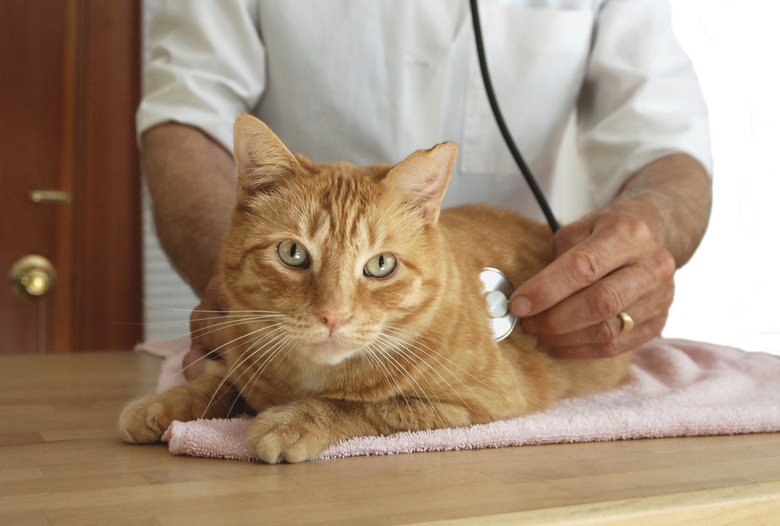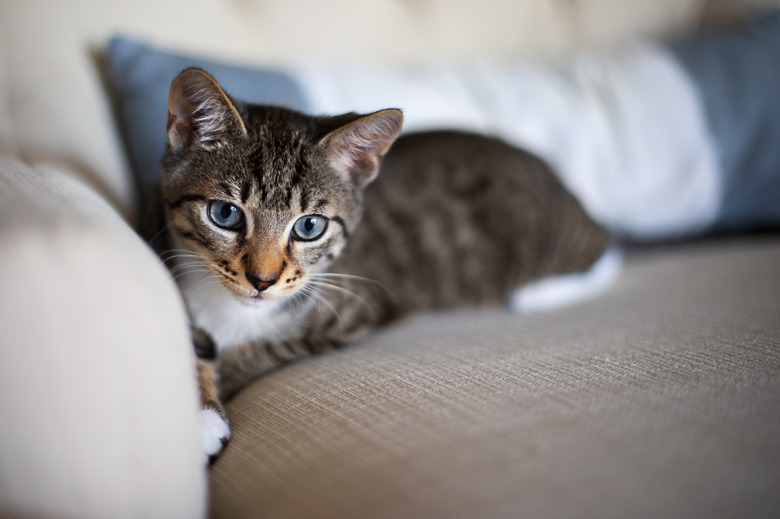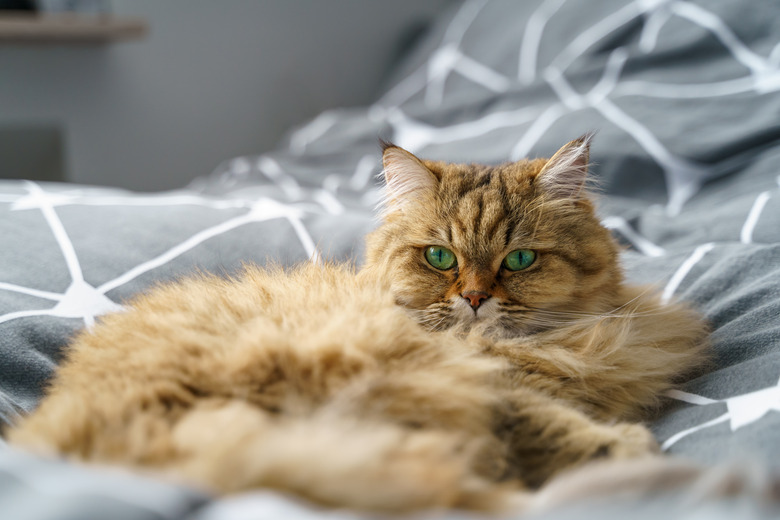Vertigo In Cats
Vertigo in cats is a balance disorder that commonly affects the animals around the age of 12 or 13 years of age. And while the symptoms of vertigo are frightening to both pet owners and cats, this is a non-lethal disorder that often clears up on its own. However, if you think your cat might be suffering from vertigo, it is important to seek immediate veterinary treatment to ease his discomfort and accurately identify the cause of his symptoms.
Vertigo in cats
Vertigo in cats
Vertigo, or vestibular disease, is a disorder of the vestibular system (the series of nerves that run from the inner ear to the brain) which sends information to your cat's brain about her orientation in relation to gravity, and therefore helps her balance. It is your cat's disorientation that gives vertigo its telltale symptoms. Because your cat's brain isn't receiving the correct information about her orientation, she feels dizzy.
She might also walk in circles, fall frequently, stumble or tilt her head. You might also notice her eyes rolling or drifting from side to side. Nausea often accompanies this constant feeling of dizziness, so your cat may lose her appetite. Or she might stop moving around as much in an attempt to stop the dizzy feeling, or mew from confusion.
Causes of vertigo in cats
Causes of vertigo in cats
There are two types of vertigo. The first, referred to as central vestibular disease, is a result of an abnormality in the cat's brain. The second, peripheral vestibular disease, is a result of a disorder of the inner ear nerves. The cause of the second, and most common type of vertigo in pets, is largely unknown (although ear infections can precipitate it). If your cat has vertigo for which a cause cannot be found, it is referred to as idiopathic vertigo.
Similar conditions in cats
Similar conditions in cats
While it is tempting to diagnose your cat's seemingly obvious symptoms, you should be aware that the symptoms of vertigo can be confused with those of other, more serious disorders. For example, because the symptoms of vertigo in cats come on suddenly, pet owners often confuse vertigo with stroke. Cats with vertigo may suddenly become very stiff, an action that resembles stroke in humans. Fortunately, strokes are rare in cats.
But vertigo can also be confused with a more common cat affliction: seizure. A cat that is having a seizure may exhibit the same, sudden-onset symptoms. However, the most obvious symptom that distinguishes vertigo from stroke is loss of consciousness. A cat with vertigo will merely be disoriented, while one that is having a stroke will lose consciousness during the seizure.
Care for vertigo in cats
Care for vertigo in cats
If you think that your cat may be suffering from vertigo, you should call your veterinarian immediately. Keep in mind that vertigo is a frightening and confusing experience for any cat. Comforting and speaking soothingly can make her less frightened.
Also ensure that your cat is in no danger of injuring himself by removing any obstacles or sharp corners. Keep an eye out for signs that your cat's condition may be worsening, such as vomiting or seizure.
Diagnosing vertigo in cats
Diagnosing vertigo in cats
The first thing that your veterinarian will do is run diagnostic tests to see if your cat is suffering from vertigo and if the cause can be determined. These diagnostics may include a blood test, and a physical or neurological examination. If your cat has vertigo and the cause is known, your veterinarian will give him medication to treat the underlying infection.
If the cause of your cat's vertigo cannot be determined (idiopathic) your doctor will simply treat your cat's nausea and other symptoms. Idiopathic vertigo often goes away on its own over the course of a few days or weeks.


